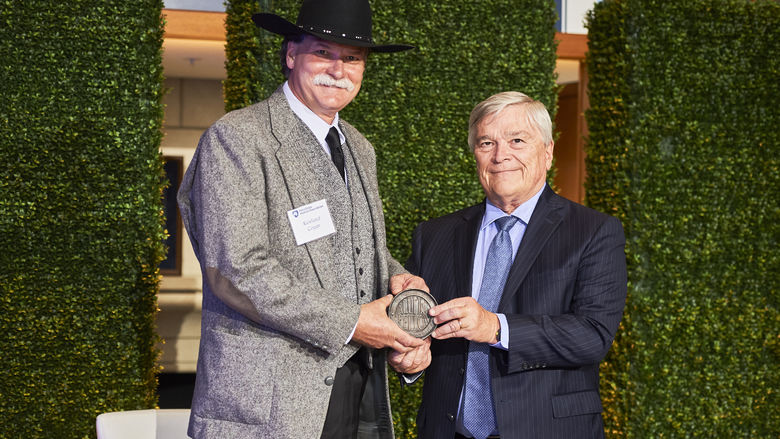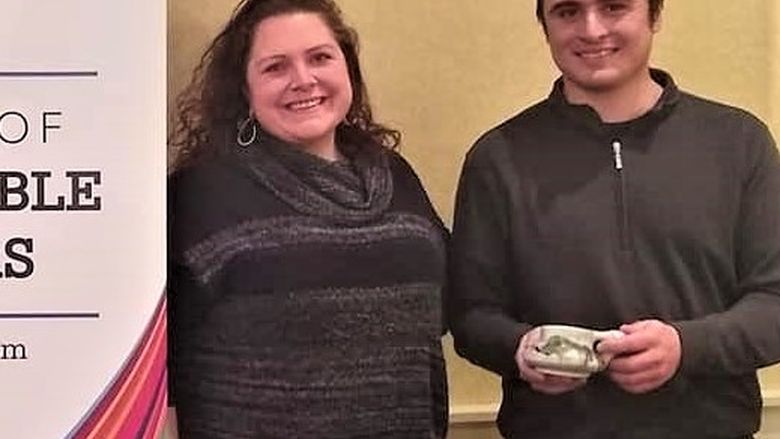Penn State DuBois wildlife technology student Piper Schwenk examines a song sparrow during a bird-banding demonstration held for participants in the Wildlife Leadership Academy.
DuBOIS, Pa. — Members of the Wildlife Leadership Academy (WLA) recently spent a day exploring their educational options at Penn State DuBois. Faculty and staff at the campus welcomed 17 academy students in grades 10-12 from school districts across Pennsylvania and other states, as well as their families. They got an in-depth look at what the Penn State DuBois Wildlife Technology Program has to offer.
According to representatives from the WLA, the organization's mission is to engage high school students to become conservation ambassadors to ensure a sustained wildlife, fisheries and natural resource legacy for future generations. A year-round program, the academy begins with rigorous summer field schools that focus on wildlife biology and conservation, as well as development of leadership skills. It continues with community outreach through education, service and interaction with media and the arts. The academy is based in Lock Haven but has field schools throughout the state.
“We take the students from high school, through career, and we want them to understand what career paths are available and how they can confirm and support their career interests,” said Katie Cassidy, youth and alumni outreach manager for WLA. “We’re here today to show them what Penn State DuBois has to offer and how they can prepare for their future. They all have an interest in conservation, so we want to show them programs like this one that has hands-on activities and that it’s a place that could fit their needs. It’s more than just visiting a campus.”
The students had ample opportunity to learn more about career paths that one can take as a graduate of the Wildlife Technology Program at Penn State DuBois. During their visit they participated in a bird-banding exercise on a small piece of wetlands near campus, and met with admissions representatives to receive a complete description of the Wildlife Technology Program and the professional opportunities that can be made possible by earning the degree, including those in conservation and natural resources, fisheries, forestry and more.
During the bird-banding demonstration, faculty and students showed academy members how birds are captured in nets and fitted with bands on their legs that can be used to track them when they are captured again in different locations, or in future years. The campus collaborates with other organizations through the Bird Banding Laboratory of the National Geologic Survey, using the information from these banded birds to determine migration patterns, habitat needs of different species and more. The information then helps them to better manage habitat.
The students also visited the campus monarch butterfly nursery, where faculty and students from the Wildlife Technology Program care for dozens of butterflies each year, from the time they are caterpillars until they are released into the environment.
These experiences gave students a look at some of the work they might do as a wildlife or conservation professional.
Lisa Burke is a graduate of the WLA and came back to work with the organization this summer as she prepares to further her education with the goal of becoming a wildlife conservation officer.
“I actually want to become a game warden, so these hands-on activities are really helpful, and they’re a blast,” she said.
For others interested in the Wildlife Technology Program at Penn State DuBois, Wildlife Visitation Days are planned for Friday, Oct. 8, and Friday, Nov. 12. To register, visit www.ds.psu.edu/visit or call 814-375-4720.

